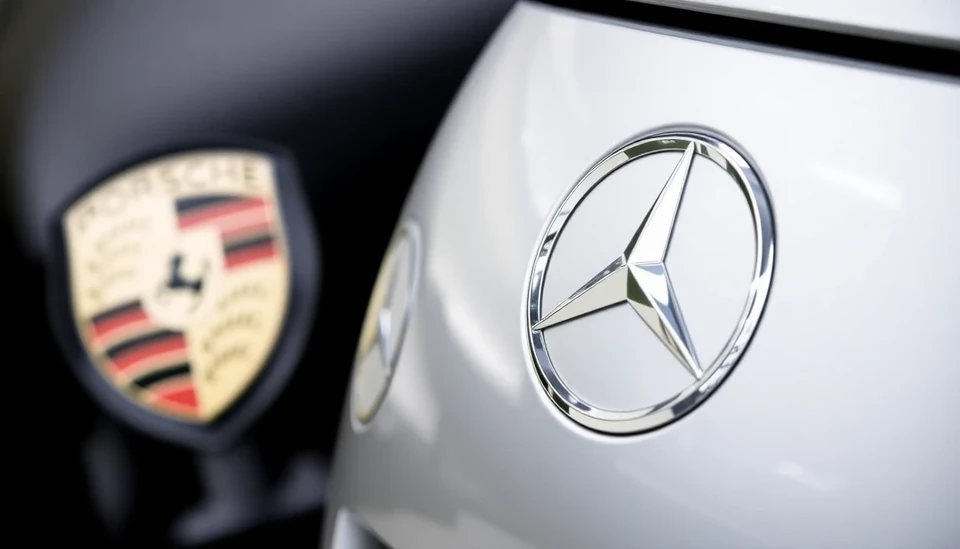
In an escalating trade dispute that could impact its bottom line significantly, Porsche AG is bracing itself for a potential confrontation with the U.S. government over tariffs. As the vehicle manufacturer operates in a challenging economic environment, discussions of possible tariffs by the Biden administration on foreign automobiles loom large on the horizon.
Recent reports indicate that the U.S. is considering imposing tariffs on imported vehicles, a move that could further complicate matters for Porsche, which relies heavily on its American market for sales. Currently, the luxury car manufacturer's exports to the U.S. comprise a substantial portion of its revenue, making any tariff imposition a potential threat to its profit margins.
The situation is exacerbated by the ongoing global supply chain issues, which have created uncertainty for many automakers. Porsche, like its competitors, has experienced setbacks due to semiconductor shortages and rising material costs. These challenges have already pressured production, impacting the availability of key models and leading to delays.
With the impending tariff situation, Porsche’s executives are exploring multiple strategies to navigate the precarious landscape. Reports suggest that they may consider relocating parts of their supply chains to mitigate the impact of the announced tariffs. By shifting operations closer to the U.S. market, Porsche could potentially avoid the financial strain of tariffs, although such a transition may not happen immediately.
Furthermore, the ascent of electric vehicles (EVs) in the automotive market adds another layer of complexity to the situation. The U.S. government is promoting domestic EV production, which could create additional competitiveness challenges for Porsche's electric lineup, particularly the upcoming models that are aimed at U.S. consumers.
Despite the uncertainties surrounding tariffs, Porsche has managed to maintain a robust presence in the U.S. market. Its commitment to high-quality engineering and performance cars has garnered a loyal customer base. However, the looming threat of tariffs could undermine these efforts, forcing the company to make tough decisions regarding pricing and production strategies.
As the situation develops, analysts continue to speculate on how the tariff imposition could affect consumer behavior. If tariffs were to significantly raise vehicle prices, it could push potential buyers toward other brands that may not bear the brunt of the tariffs, resulting in lost sales for Porsche.
Looking ahead, Porsche is urged to keep a close eye on negotiations and policy changes as this situation unfolds. The outcome could determine the brand's competitive standing in one of its largest markets, steering the company towards either lucrative opportunities or formidable challenges.
In summary, Porsche is at a critical juncture as it navigates the complexities of potential tariffs while dealing with ongoing supply chain issues. The company’s strategy in the face of these obstacles will be crucial in maintaining its esteemed reputation and financial health in an unpredictable automotive landscape.
While stakeholders await further developments, the spotlight remains on how Porsche will respond to this potential tariff showdown and steer its operations amidst a landscape of economic vulnerability.
#Porsche #Tariffs #USAutoIndustry #TradeDisputes #SupplyChainChallenges #ElectricVehicles
Author: Laura Mitchell




